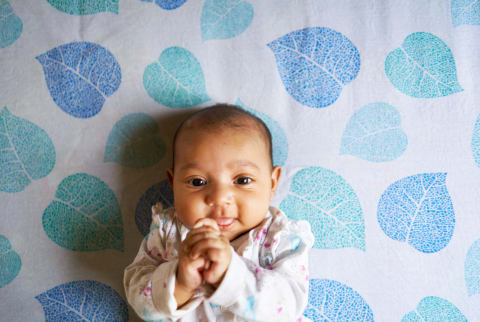Advertisement
Is There A Way To Prevent Your Children From Developing Allergies?


According to the CDC, the incidence of allergies in kids is on the rise. Between 1997 and 2011, food allergies increased by 50 percent—and kids are specifically having a hard time stomaching foods like milk, eggs, tree nuts, soy, and peanuts, to name a few. Issues like eczema are also on the rise among children, and a lot of parents are left scratching their heads and wondering what to do.
"These days, a lot of babies are born without the important gut bacteria you need to protect and colonize the gut and prevent future allergies," explains Tanya Altmann, M.D., a pediatrician who treats children with allergies daily. "Bad gut bacteria is associated with higher risk of asthma and allergies." While you should always seek medical help if your kids are suffering from allergies, here are a few useful tips as recommended by allergy experts.
What can women do to prevent allergies while they're pregnant?
If you want to start taking action while you're pregnant, Neeta Ogden, M.D., suggests starting by minimizing stress. "Studies have shown that minimizing stress can help reduce allergies," she explains. "Also, if you're comfortable with allergy shots, doing them while pregnant can help minimize the genetic passing down of seasonal allergies to your child."
What about when their babies are infants?
If you can make breastfeeding work for you, it's an excellent way to promote immunity in infancy. "Allowing exposure to nature, environment, and dirt allows the immune system to grow and be exposed to many stimuli, which helps as well," Ogden adds. "Similarly, studies have shown that pets in the home in the first year of life may be helpful in decreasing pet allergies."
She adds that following current guidelines and not delaying the introduction of "allergenic" foods can also be helpful. "If your child is showing signs of eczema early on, one of the first indicators of the atopic march, take some steps at home like using crib encasings and washing bedding in hot water weekly to decrease dust mite exposure, which is linked to eczema and allergy."
Altmann also suggests taking a B. infantis probiotic while breastfeeding. "That's the organism that's protective and keeps down overgrowth of bad gut bacteria," she explains. "I can't say with 100 percent certainty that it will prevent allergies, but it will keep down bad gut bacteria, which is linked to developing allergies later in life."
What to do if your kids start developing allergies.
If your child does end up developing allergies, the course of action you take will depend largely on severity. "With egg or milk allergies, often kids can tolerate cooked products—like a muffin, for example. If you give them little bits every day, there's a greater chance that they'll outgrow their food allergies. But you have to be very careful and have Benadryl and EpiPen on hand just in case."
She adds that the only way to 100 percent protect your child is to keep the things they're allergic to out of their environment. "There's still so much that we're learning, and I do believe we'll have more answers eventually."
For now, exercise caution—and always consult a professional before exposing your child to potential allergens.
Want to know what's causing your allergies? Here's an idea.











